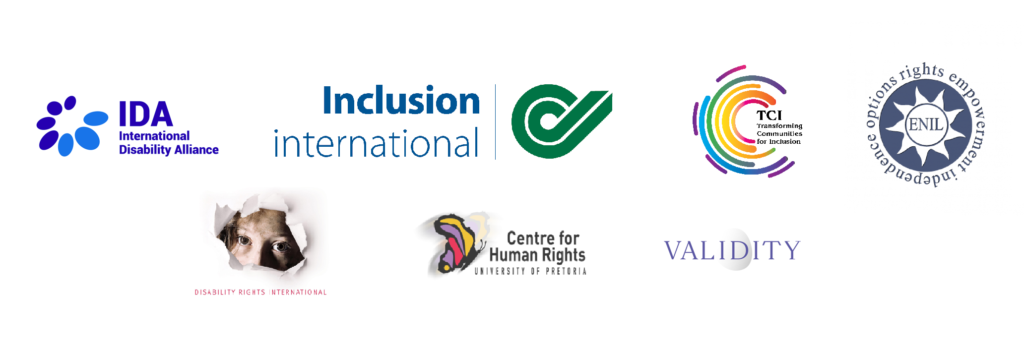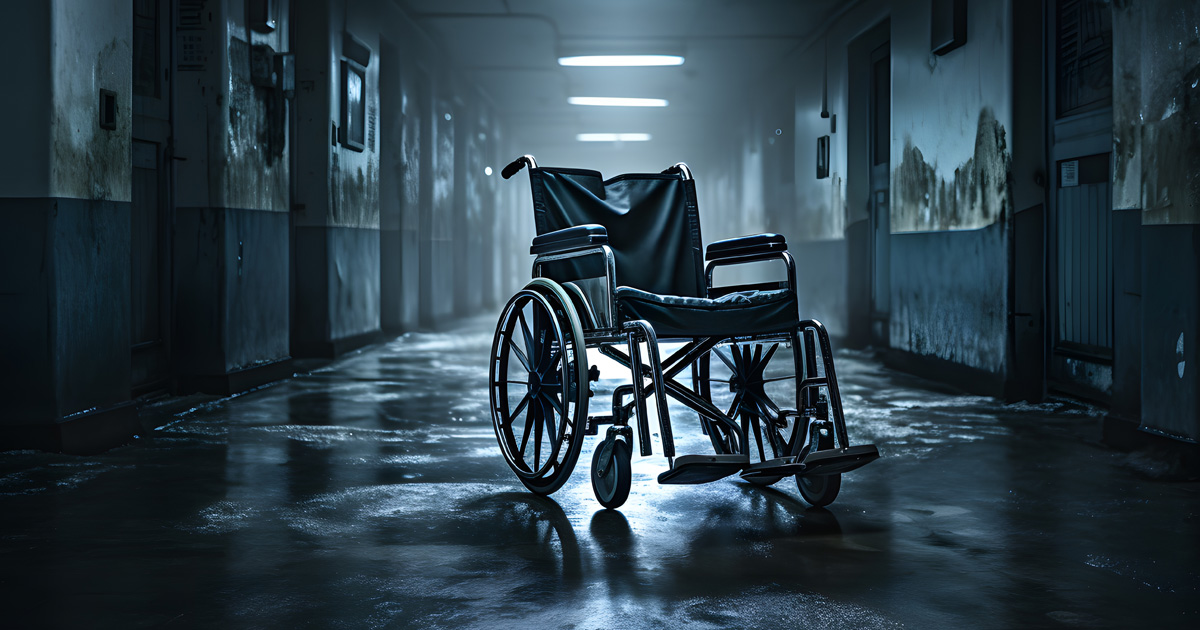On 18 August 2023, the UN Committee on the Rights of Persons with Disabilities marked the one-year anniversary of adoption of its Guidelines on Deinstitutionalization, including in Emergencies (CRPD/C/5). Watch the official recording on UN Web TV here.
The Global Coalition on Deinstitutionalization (‘GC-DI’) is a collection of seven leading international organizations of persons with disabilities and civil society organizations. It was formed around the collective goal of promoting deinstitutionalization of persons with disabilities, under Article 19 of the Convention on the Rights of Persons with Disabilities (‘CRPD’).
One year ago, in 2022, the CRPD Committee adopted its Guidelines on Deinstitutionalization, including in Emergencies. The preparations leading to this document were unique in the level of input and participation from persons with disabilities and civil society organizations worldwide. GC-DI was founded in June 2021 with the aim of supporting this important process. GC-DI facilitated regional consultations and remained closely involved at every stage of the process. For the first time, the Guidelines provide comprehensive guidance to States Parties to the CRPD in advancing, without delay, on achieving full deinstitutionalization.
One year since adoption of the Guidelines, we witness that change remains slow in some countries, and in some cases we observe retrogressive steps being taken. Whereas we welcome the impressive mobilization we have seen from organizations of persons with disabilities, including those of survivors of institutionalization, and broader civil society, this spirit is yet to be matched by countries that maintain large-scale systems of disability-based institutionalization. We believe that to implement the Guidelines, we need to overcome observed shortcomings, work on shifting mentalities, and leverage strong commitments from all stakeholders.
We notice that when it comes to change, law reform in alignment with the Convention remains slow. While some governments are putting together deinstitutionalization plans and strategies, few are making further changes to modify their legal environment, as the Guidelines require. Substituted decision-making remains prevalent in numerous countries, and others still allow for forced detention and treatment of persons with psychosocial disabilities, persons with intellectual disabilities, autistic persons, and other populations that experience multiple forms of discrimination. Mental health laws are being adopted in places where they did not exist before, facilitating forced detention and treatment in violation of the Convention. We must advocate for legislation to be in line with the CRPD, as laws are likely to remain and be impactful in the long term.
Even where there is progress, we are concerned that some deinstitutionalization processes have become a “checklist” exercise. We see our terminology being misused, with segregated services being labeled as “independent living” or “transitional”. Such actions perpetuate a wrongful medical model approach, with persons with disabilities treated as objects of protection and care, despite the evidenced harms inherent within all forms of disability-based detention, as we recall from the shocking situations that occurred during the pandemic. Institutions have never been safe, are not safe, and never will be safe, and can never guarantee the right to independent living and inclusion of persons with disabilities. Services must respond to the needs and wishes of persons with disabilities, who must have choice and control. When investing in services which do not comply with the Guidelines, labeling them as “transitional”, there is a heightened risk that such segregated services will remain in place in the long term, and become the only option for persons with disabilities.
Deinstitutionalization is a crucial component in fulfilling other rights guaranteed under the Convention, and therefore requires adequate funding. Governments must invest in services and systems of support in the community, as a core aspect of deinstitutionalization processes, and in creating enabling, inclusive environments. This is also true for donors, particularly in situations of emergency. Siloed approaches between humanitarian aid and development cooperation are slowing down processes, as donors consider deinstitutionalization a matter of development cooperation, despite the urgent need in emergency contexts. We need donors to streamline funding towards deinstitutionalization, with a nexus approach and better coordination between humanitarian aid and development cooperation.
The United Nations has a duty to invest in and collaborate to implement the Guidelines too. We observe that some agencies and treaty bodies promote outdated views and the content of the guidelines are not well integrated into UN resolutions negotiated by member States. The United Nations Disability Strategy is not sufficiently enforced. Better coordination and alignment among all United Nations agencies and bodies is essential.
Success will only happen if the Guidelines are used as a fundamental basis worldwide. We take this opportunity to highlight the need for better representation of persons with disabilities from the Global South in all discussions, to understand how the Guidelines can be adapted to different contexts. Diversifying our movement is something we must work together on, as we need all persons with disabilities and civil society organizations to gain awareness of the Guidelines and make it a cornerstone of their advocacy.
In conclusion, we need more States Parties to engage in genuine efforts to implement the Guidelines, but we also need those that are already implementing them to do better. All stakeholders, including the United Nations and civil society, have a role to play. GC-DI will continue to disseminate the Guidelines and work together to make deinstitutionalization a reality.
Global Coalition on Deinstitutionalization
contact@gc-di.org

